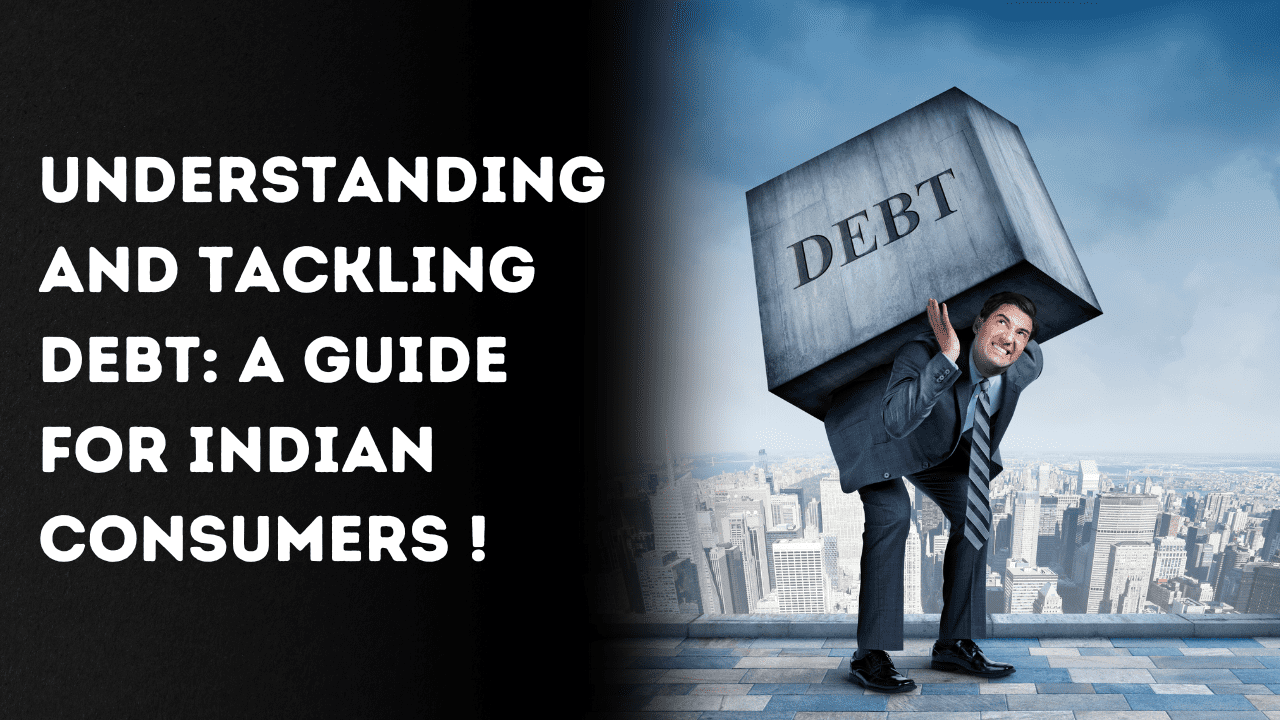Getting Out of Debt: Tips for Paying Off What You Owe
16 Apr 2024 3 mins Personal Finance

This concise guide provides essential strategies for Indian consumers to understand and tackle debt effectively. From organizing debt details to exploring repayment methods and considering income augmentation, each step is outlined to empower readers in their journey towards financial freedom. With practical insights and cautionary advice, this guide equips individuals with the tools needed to conquer debt and build a brighter future.
Understanding and Tackling Debt: A Guide for Indian Consumers
- Organize Your Debt: Start by listing all your debts, including details like the type of debt (such as loans or credit cards), the lender, total balance, interest rate, and monthly payment. This comprehensive list provides clarity on your financial obligations and serves as a basis for debt repayment planning.
- Review Your Budget: Adjusting your budget is essential for effective debt repayment. Identify necessary expenses like housing and groceries, and categorize discretionary spending such as entertainment and dining out. Determine where you can cut back temporarily to allocate more funds towards debt repayment.
- Choose a Repayment Strategy: Consider employing the debt snowball or avalanche method to pay off your debts systematically. The snowball method focuses on paying off the smallest debts first, while the avalanche method prioritizes debts with the highest interest rates. Select the strategy that aligns best with your financial goals and motivates you to stay on track.
- Pay More Than the Minimum: Increasing your monthly payment beyond the minimum amount accelerates debt repayment and reduces overall interest costs. Allocate additional funds from budget cuts or windfalls like tax refunds or bonuses towards paying off your debts faster.
- Make Biweekly Payments: Opting for biweekly payments rather than monthly payments can expedite debt repayment. By submitting payments every two weeks, you make an extra payment each year, reducing interest expenses and shortening the repayment period.
- Negotiate and Settle: If you're struggling with credit card debt, consider negotiating with creditors to settle for a reduced amount. Propose a repayment plan based on your financial circumstances and seek agreement from creditors in writing. Alternatively, explore options like debt management plans offered by nonprofit credit counseling agencies.
- Explore Consolidation and Refinancing: Consolidating multiple debts into a single loan with a lower interest rate can simplify repayment and reduce overall interest costs. Explore options like personal loans for debt consolidation or balance transfer credit cards for credit card debt. Refinancing student loans with private lenders may also result in lower interest rates and more manageable monthly payments.
- Increase Your Income: Supplement your existing income by taking on a side hustle, selling unused items, or negotiating a raise. Boosting your income allows you to allocate more funds towards debt repayment and expedite your journey to financial freedom.
- Consider Lesser-Known Strategies: Explore unconventional approaches like adjusting tax filing status, researching state-based loan repayment assistance programs, attending support groups like Debtors Anonymous, or utilizing debt repayment apps. These lesser-known strategies offer additional avenues for managing debt effectively.
- Proceed with Caution: While bankruptcy is an option for severe debt situations, it should be considered as a last resort due to its long-term impact on creditworthiness. Consult certified credit counselors and carefully evaluate all options before pursuing bankruptcy.
Bottom Line
By implementing these strategies and remaining committed to your financial goals, you can take control of your debt and pave the way towards a brighter financial future.
Find the best Credit Cards for Shopping, Travel, Students & much more on Credyfi- https://www.credyfi.com/credit-cards